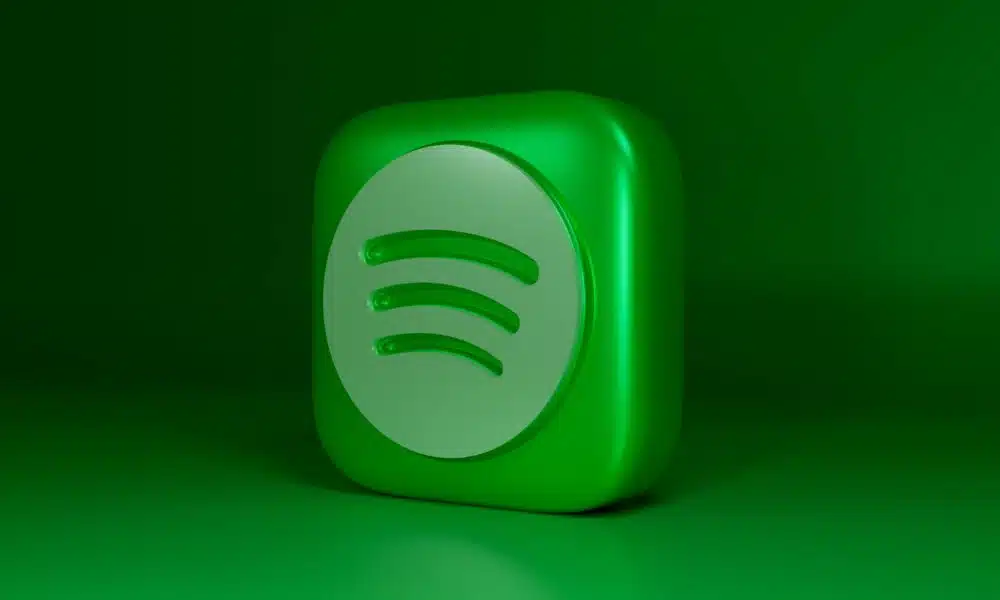In the event you haven’t heard, there have been many articles published regarding Spotify’s planned “Royalty Model” changes. Spotify has officially confirmed these changes, so we thought we’d dive into the planned changes, why Spotify is doing these changes (according to them) and our view points on what will undoubtedly be, the new normal.
Note: If you are new to understanding Spotify’s Royalty Model and wish to understand how the “Royalty Pool” works, it may be helpful to understand the royalty model that has been active since day one. Spotify has written a piece educating how this works, in addition to a video which you can view here.
Our Take on Spotify’s Latest Royalty Model Overhaul
Change #1: Track Monetization Eligibility
Starting in early 2024, tracks must reach at least 1,000 streams on a 12 month trailing period in order to generate royalties. Any track that has streamed less, will not receive a royalty.
- Spotify will not make additional money under this model. There is no change to the size of the music royalty pool being paid out to rights holders from Spotify; Spotify will simply use the tens of millions of dollars annually to increase the payments to all eligible tracks, rather than spreading it out into $0.03 payments.
Why? Spotify has stated this as the reason for the change:
” It’s more impactful for these tens of millions of dollars per year to increase payments to those most dependent on streaming revenue — rather than being spread out in tiny payments that typically don’t even reach an artist (as they do not surpass distributors’ minimum payout thresholds). 99.5% of all streams are of tracks that have at least 1,000 annual streams, and each of those tracks will earn more under this policy… Spotify also believes the policy will eliminate one strategy used to attempt to game the system or hide artificial streaming, as uploaders will no longer be able to generate pennies from an extremely high volume of tracks. For more details on this policy, check out the Spotify for Artists help center here.”
What do we think about this?
While it may look like a negative thing that some artists who don’t make 1,000 streams in a trailing 12-month period won’t get paid, this doesn’t mean that this money can’t come back to you for your more successful tracks. It also doesn’t mean that the overall streaming royalty rates can increase as a benefit to this rule.
I think a potential result of this will mean less quantity and more quality, which we believe is good for consumers. At the end of the day, time will tell on the effects of this and if it truly means more income to those that have legitimate music. There are many arguments that this will benefit the majors, but I strongly believe this will effectively benefit the royalty pool and everyone who has legitimate streams.
We’ll just have to wait and see how things play out.
Change #2: Charges for Artificial Streaming
Beginning early next year, Spotify has announced they’ll be charging labels and distributors per track when flagrant artificial streaming is detected on their content.
- This new deterrent follows the improved artificial streaming detection technology we rolled out earlier this year, as well as the establishment of the newly formed Music Fights Fraud Alliance.
Spotify has stated this as the reason for the change:
“Spotify can fight artificial streaming once it occurs on our platform, but the industry would be better off if bad actors were disincentivized from uploading to Spotify and other streaming services in the first place. Spotify believes this will meaningfully deter labels and distributors from continuing to distribute the music of known bad actors that attempt to divert money from honest, hardworking artists. These charges will support continued efforts to keep the industry and platform free of artificial activity.”
What do we think?
Although many in the distribution space are not happy with this one, it’s a strong and necessary message to the folks involving themselves with fraudulent practices.
We are part of the Music Fights Fraud Alliance, we’ve invested heavily in building a Trust & Safety department, and we’re making strides to better know our customer (KYC) as well as ensure that any fraud that we detect and/or that comes through our systems is halted as quickly as possible.
However, I have three points to highlight on this one…
- It’s quite unreasonable to penalize labels and distributors who aren’t committing fraud, only to then involve them as partners in crafting a solution. Furthermore, this implies that Spotify now has the financial capacity to profit from such misconduct… but that’s another matter.
- Transparency is essential. Without Spotify’s collaborative efforts to ensure openness, we’re facing an autocratic approach akin to being judge, jury, and executioner. However, I am optimistic that a level of transparency acceptable to us and our peers will eventually be established.
- Artists legitimately get scammed every day. Artists… if you are reading this: DO NOT PAY ANYONE THAT GUARANTEES YOU X STREAMS FOR X DOLLARS. If you do, you will pay double, be penalized, and essentially hurt your career for years to come. We are currently collecting a list of every company, website, and individual promising this and working on reporting them.
Change #3: New Policies for Noise Recordings (and other non-music content such as Rain Sounds, ASMR, etc.)
Starting next year, Spotify is increasing the minimum track length of functional noise recordings to two minutes in order to be eligible to generate royalties. (“Functional” genres include white noise, nature sounds, machine noises, sound effects, non-spoken ASMR, and silence recordings.)
Additionally, they’re working with licensors to value noise streams at a fraction of the value of music streams.
Why? Spotify has stated this as the reason for the change:
“By setting a minimum track length, these tracks will make a fraction of what they were previously earning (because two minutes of listening to noise recordings would generate one royalty-bearing stream not four), freeing up that extra money to go back into the royalty pool for honest hard-working artists…It also creates a fairer playing field for artists in these functional genres, by eliminating the perverse incentive to cut tracks artificially short with no artistic merit, at the expense of listener experience… These policies will right-size the revenue opportunity for noise uploaders. Currently, the opportunity is so large that uploaders flood streaming services with undifferentiated noise recordings, hoping to attract enough search traffic to generate royalties.”
What do we think about this one?
Out of all the changes, this is the easiest one to agree with. As an artist myself, I 100% agree with this change. Artists shouldn’t have to compete for the same royalty rate and attention as noise. We should be talking about actual music being valued. Personally, I was actually in favor of not monetizing this content and I think de-valuing it and setting standards around it will make a big difference.
This category of “music” is a big and important market for Spotify, as many people benefit greatly from this type of content for their mental health, to go to sleep, calm down, and more… but there should still be boundaries around it when it comes to royalties.
Our final thoughts…
Other solutions and standards could have and can still help.
I’ll be honest about this issue: the field I’ve been a part of for many years has been compromised by the sudden influx of too many distributors. This has significantly contributed to the devaluation of our profession and stands as a central part of the problem.
Becoming a distributor should require more than just the desire—it should necessitate the proper technology, tools, and relationships that truly support artists. The industry is currently plagued with too many “white label” distributors and inappropriate extensions from companies with no rightful place in the music industry, which only exacerbates fraud and dilutes the royalty pool.
Greater rigor and more oversight are imperative. I’m convinced that, as the industry evolves and becomes more complex, several of these distributors will struggle to keep up on the advancements and shifts. Frankly, I see this as a positive development. The market is saturated with options, many of which have played a significant role in creating the very issues prompting Spotify to implement these changes.
For us, we will continue to work closely with our partners as the industry evolves, educate our team members accordingly, and of course, focus on sharing as much educational resources as possible to our community to help aid these causes, protecting the artists we’ve dedicated our careers to.
Thanks for reading.



